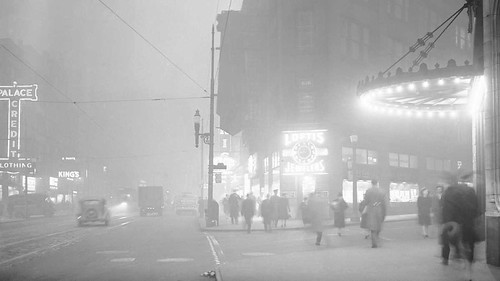Pittsburgh area elected leaders publish ad in local newspaper, affirming commitment to addressing climate change
PennEnvironment, a statewide citizens advocacy group focused on environmental matters in the State of Pennsylvania, alerts us to how elected officials from the City of Pittsburgh, Allegheny County, local representatives in the State Legislature, and the Congressman representing Pittsburgh, Mike Doyle, put together an advertisement running in today's Pittsburgh Post-Gazette, affirming their commitment to addressing climate change through responsible and responsive local actions.
Below is an image of the ad.
I'm not always a fan of federalism and subsidiarity, because "state's rights" can be used as a way to restrict freedoms and do the wrong thing, rather than to respect freedoms and do the right thing.
Fortunately, the reality is that despite President Trump's repudiation of the Paris Climate Agreement, federalism and subsidiarity the basic economics of energy production and renewable energy, and the risk management necessity of planning for resiliency in the face of more severe weather events, most reputable businesses many of our states, cities, and counties, and us as individuals will continue to take actions that aim to reduce greenhouse gas emissions.
But it does mean at least in the intermediate term that we're not likely to see an increase in the federal gasoline excise tax--which could be the biggest force for change in terms of fuels used for motor vehicles--cars and trucks account for 25% of oil consumption, nor advances in regulations and programs aimed at generating pro-environmental outcomes:
- the Trump Administration reversed a regulation that forbade coal ash discharges into rivers--and rivers are the primary source of the nation's drinking water
- the Trump Administration aims to shrink the EPA
- the Trump Administration keeps proposing to practically eliminate programs to improve the water quality and other environmental elements of the Chesapeake Bay and the Great Lakes
- the Trump Administration proposes to give federal lands to the states, so that these public lands can be "developed"
etc.
Pittsburgh's history of environmental degradation. Ironically given the ad mentioned above, and not mentioned in the ad at all, is Pittsburgh is a classic historical example of the impact of industrial practices which paid no heed to environmental protection.
The city's air quality was so bad as a result of the release of pollutants into the air from steel production that typically, stores and streetlights had to be used during what should have been daytime.
See "A Revitalized Pittsburgh Says the President Used a Rusty Metaphor," New York Times.

Midday in downtown Pittsburgh in 1944. As thick smog blanketed the city, drivers used their headlights, and storekeepers switched on their signs. Photo: Walter Stein, Associated Press.
Labels: electoral politics and influence, energy, green-environment-urban, the robust and resilient city, weather




0 Comments:
Post a Comment
<< Home